#CarOwnership
Two-year Update: Your Author's 2015 Lexus GS 350
Believe it or not, two full years have passed since I took the very long and fairly rushed journey from Cincinnati to Austin to purchase the 2015 Lexus GS 350. After the fly-then-drive non-holiday trip, it was time to settle into some routine ownership and driving. Routine might be the wrong word though, as within a year the scope of “routine” changed considerably. Want to guess how many miles it’s accumulated over the past couple of years?
Yet More Evidence That America's Car Addiction Is Not About To Die
New York City and San Francisco, besides having the most tailored beards and bike activists on both coasts (Note: Portland might have something to say about this) might not like some of the data emerging from the University of Michigan.
While some Millennials, especially ones working at startups and paying the equivalent of a Cadillac for a shoebox apartment in a trendy, upcoming part of their building, might think personal car ownership is as dated a concept as VCR tapes and telephone banking, there’s a vast gulf between that lifestyle and that of the average American. It’s clear to see in the U-M Transportation Research Institute’s latest findings.
The data also pours a cold glass of asparagus water over an earlier poll that suggests we’re poised to kick car ownership to the curb.
Scientists Reveal What We Already Knew: Economy Cars and Gas Guzzlers Love Each Other
Picture a suburban street in an average middle class neighborhood. In each driveway sits two vehicles, as tradition states no modern American suburban family can make do with just one. Think about those two vehicles for a minute now.
Are they evenly matched? In other words, are they the same size? Do they fulfill the same requirements laid out by a single segment? Doubtful, and your mind’s eye already made this clear. One’s a Safari or Caprice wagon, the other’s a Datsun 210. One’s a Corolla, the other, a Suburban. A Focus and an F-150, and so on.
Does owning an economy car compel new car buyers to splurge when new-car buying time rolls around? Logic, and now science, says yes.
No Fixed Abode: No Matter How Far Wrong You've Gone, You Can Always Turn Around
I was still in my 20s, browsing my local library’s jazz catalog with what I hoped was an open mind, when I found Brian Jackson and Gil Scott-Heron’s “Winter In America” tucked between Wynton Marsalis and Chick Corea. I had a vague idea of who Scott-Heron was from my years in school, so I snagged it, put the CD in my Fox on the way home, and I was … struck dumb. This was something new for me, both musically and politically. In the years since, I’ve often thought that if God truly loved me he would have given me Gil Scott-Heron’s steady baritone instead of my over-modulated tenor.
In the years that followed, I persevered as a fan of Scott-Heron through the man’s ups and downs. Shortly before his death, he stunned me and everybody else again with I’m New Here, a heartfelt but judiciously studied effort that was aimed with laser precision at rap fans and the regular-at-Yoshi’s crowd alike. In that album’s title track, Scott-Heron gathers up what is left of his voice and growls, “No matter how far wrong you’ve gone / you can always turn around.” It was a knowingly ironic statement from a man who could clearly foresee his imminent death from AIDS-related complications, but it was also a final benediction, a last bit of weary advice from a man who had long viewed himself as a prophet without honor in his own community.
That phrase — “No matter how far wrong you’ve gone / you can always turn around” — has weighed heavily on me lately, for any number of reasons. I have a few friends, some more dear to me than others, who would benefit mightily from a serious application of that advice. But since this is at least nominally a blog about cars, let’s talk about what it means to our four-wheeled decisions, instead of how it might apply to relationships that should have been dropped in the Marianas Trench years ago.
Yes, let’s do that.
Study: Which Car Models Do Owners Keep for 10 Years or More?
A few billion years from now the sun will swell up, engulf the Earth with its plasmatic mass, and the only evidence of our existence will be a handful of fully operational Japanese cars from the late 1990s.
You probably don’t even need model names, as you’re already imagining them cruising down the street or parked in a neighbor’s driveway. They’re bland, extremely common cars in perplexingly good condition because someone continues to love them.
Now, a new study has shown which car models owners tend to hold on to for longer than ten years. Researchers from iSeeCars.com analyzed over 2.5 million vehicles from the 1981-2006 model years sold in 2016. Ten models were over 1.9 times more likely than average to be held onto by the original owner for better than ten years. While I’m positive you could correctly guess the automakers behind those vehicles, I’m unsure whether you could do the same with the model names.
Looking for Cheap, Low-stress Car Ownership? Head to the Cornfields
If it wasn’t for the blissful autonomy and convenience that comes with car ownership, how many people would want to shoulder the ever-growing cost? Insurers lie in wait to squeeze you, law enforcement waits to punish you, environmental groups demonize your lifestyle, and governments at all levels salivate at the thought of making it more expensive to own a personal vehicle.
Meanwhile, you dance to the tune set by oil companies and geopolitics, weathering financial blows when pump prices rise. If only there was a place where those worries fell away — where the act of owning and driving a car wasn’t as stressful.
As it turns out, this place exists. And it’s just west of the Mississippi.
Hyundai to Millennials: 'Can We Interest You in a Subscription?
Millennials, the constantly-stereotyped cohort of young adults who won’t watch a black and white movie but still like cars, are every automaker’s go-to crowd for future sales.
Hyundai has announced a plan to tap these would-be car buyers in a way that drills into the very core of what they desire in vehicle ownership (or so studies show). Think of it as the Netflix approach to sales.
Can Yoyo, a Pay-Per-Mile Car Subscription, Shake up the Mobility Landscape?
Yoyo believes, like other mobility disruptors, that the traditional automobile acquisition and ownership experience is broken. It maintains that the majority of consumers can be provided with more flexible, efficient, lower-cost alternatives to the incumbent model of personal mobility. However, the prevailing two-step distribution system is entrenched and the insurance, maintenance, parking, and other segments of the $2 trillion extended auto industry are not incentivized to embrace change.
Will Yoyo’s pay-per-mile subscription model participate in disrupting the calcified status quo?
The Accord at Thirty (Thousand Miles)
Twenty-three months ago, your humble author did what virtually nobody in this auto-journo game does — I went out and paid my own money for a thoroughly mass-market, middle-of-the-road vehicle. In just seven months, my 2014 Accord V6 Coupe 6MT and I made it to twelve thousand miles. Starting this spring, the pace at which I put miles on the big Honda slackened significantly as I diverted about 7,500 miles of commuting to my motorcycles.
Other than an oil change and imaginary tire rotation, the Accord didn’t require anything in 2015. Which bring us to January 2016, the 30,000-mile mark, a set of new shoes, and some long-term-style observations.
Bark's Bites: A Weekend Without A Car
After a week in which I was burned in effigy by some “autowriters” who didn’t much care for my editorial about their complete and total lack of ethics (don’t worry, fellas — I still won’t send you a bunch of web traffic, er, I mean, name names), I found myself in a situation that Alanis Morissette would call “ironic.”
I was going to spend the weekend in Philadelphia at the glorious Hotel Monaco, right in the Old City across the street from Independence Hall. Thanks to a last-minute deal, I got a magnificent rate of $100/night, but there was still the specter of the $43/night parking rate looming over my head, not to mention the difficulties of finding parking elsewhere in the city once I actually retrieved my vehicle from the valet.
As a result, I decided to go without a rental car for the four-day weekend, instead depending entirely on Uber and the city’s taxi services to squire Mrs. Bark and me around the City of Brotherly Love. This was the perfect way to test out the only viable theory that some of my colleagues in the automotive journalism (not that there’s much journalism going on, but that’s another subject for another time) game put forth as to why some writers don’t own cars.
“It’s too difficult and/or expensive to own a car in the city,” they said. As somebody who was born in the Greater New York City area, but has spent most of his life in the Midwest and the South, I was eager to see if I, too, would make the choice to go carelessly carless on the eastern seaboard.
Bark's Bites: Why Don't Some Car Reviewers Own Cars?
In one of the many private automotive journalist groups on Facebook (from which I’ll most certainly be banned later today), there was a comment posted recently from a car reviewer bemoaning his lack of a press car in the near future.
“I have to go four days without a press car. My life is basically on hold,” said our dear reviewer. “What am I supposed to do?”
This is the sad reality for most “car reviewers”. Their personal brands are so strictly defined that they can’t write about anything other than how many cup holders are in the newest Maibatsu Monstrosity.
But then it got worse. From another reviewer: “I have no personal vehicle so when my inevitable lag in press cars happens, I’ll be lost.”
I’m sorry — you don’t own a car? Say what?
Study: Nine Out Of 10 Millennials Consider Car Ownership Important
Allegedly, Millennials care only about the latest iPhone, and not the i8. Nine out of 10 Millennials would disagree, and consider car ownership important.
Where Have All The Clinton Era Cars Gone?
That moment you realize the oldest car in the parking lot is yours.
Yeah, I just had that moment.
The car in question is a 2001 Honda Accord EX. Four-door. Five-speed. A dodo bird of a used car stuck in today’s finance driven market. I walked around the parking lot you see above trying to find one vehicle, any vehicle, that’s as old as mine.
The blue ’05-ish Caravan on the bottom left came a bit close, but it didn’t happen. Instead, everything else seemed to be on the younger side of the curve, the overwhelming majority of vehicles sold new at a later time in history.
Kalanick: UberX Could Become Cheaper Than Owning A Car
Uber wants to do more than disrupt the traditional taxi service, seeking to bring its pricing low enough to replace your own vehicle, period.
Ford: Automotive Industry Must Prepare To Rethink Transportation
Sharing the pages of The Wall Street Journal’s 125th Anniversary issue with the likes of Mark Zuckerberg, Larry Summers and Taylor Swift, Ford Executive Chairman Bill Ford, Jr. sees a future for the automotive industry so bright, he’ll need to wear shades.





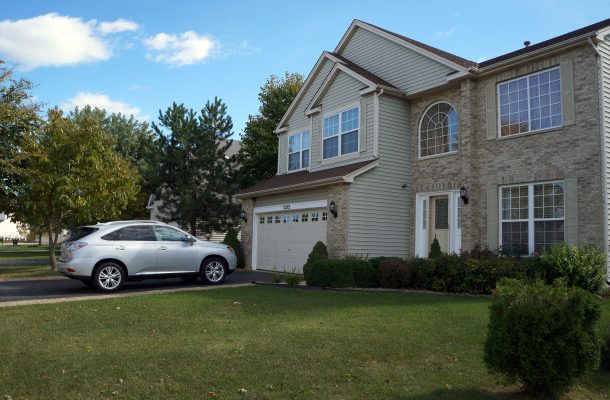
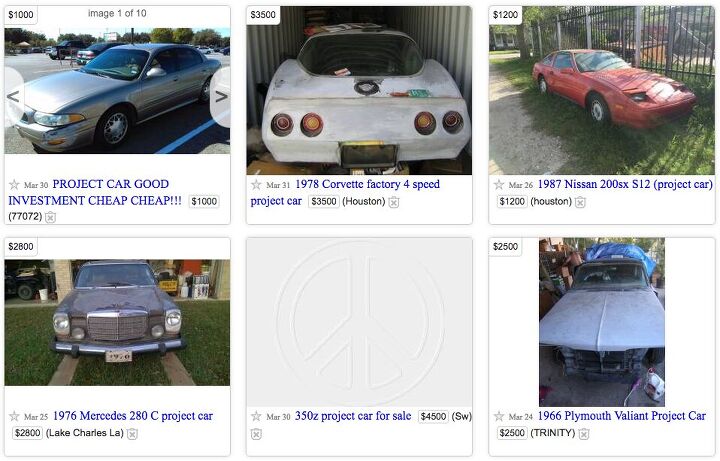
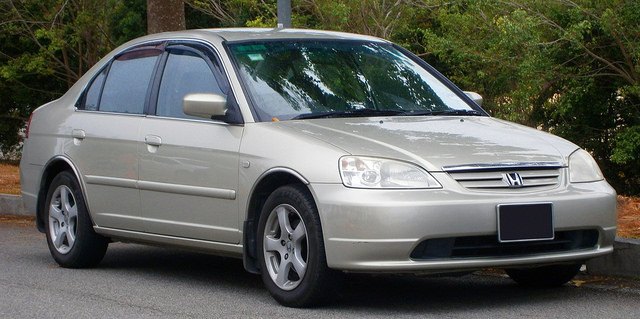

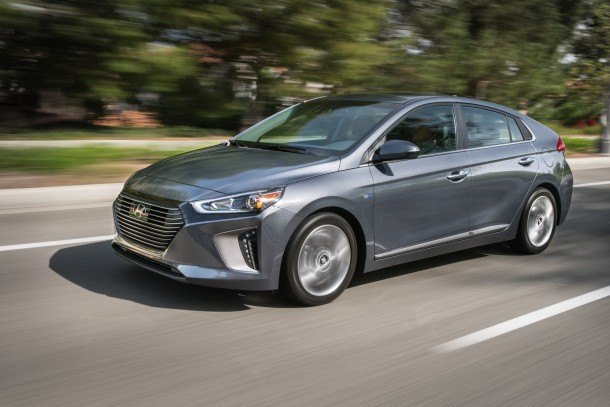

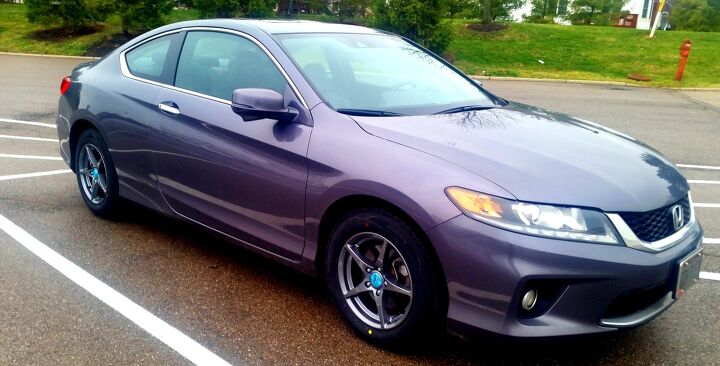


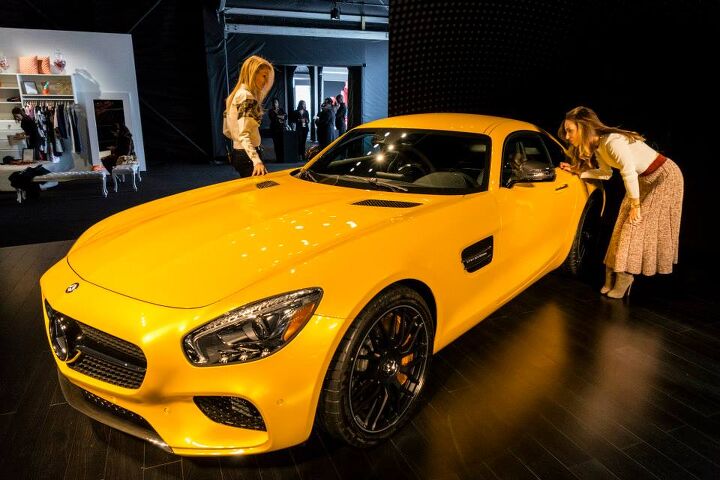

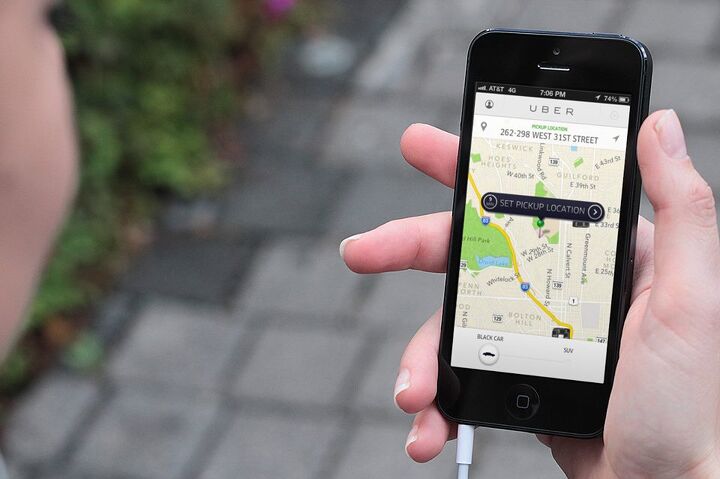
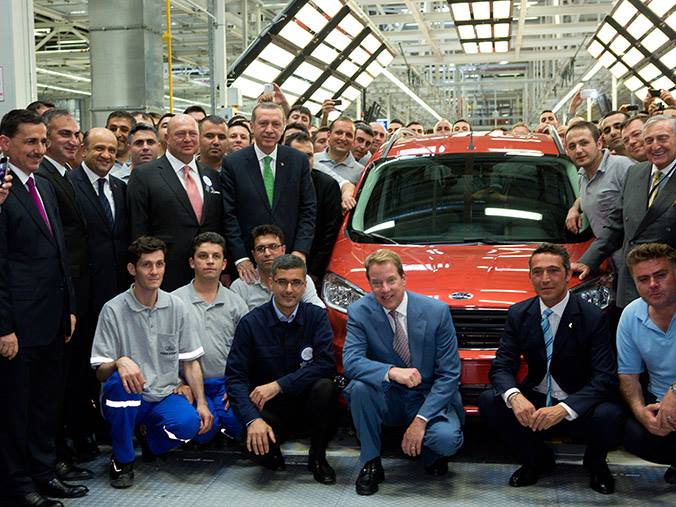












Recent Comments